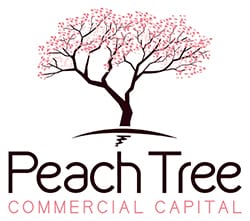SBA Loans in Atlanta, GA and Nationwide
The Small Business Association in Atlanta, GA and nationwide offers a variety of business loans with varying terms and APR for all types of businesses. Funds can be used for anything from the purchase of new equipment to construction and daily inventory. To be considered a “small business”, you must meet specific SBA requirements, and loan eligibility is determined based on proof you meet those requirements.
The largest benefit of this financing is that the SBA will guarantee a percentage of these loans to the lender providing a significant measure of security for guaranteed repayment. As a result, financial institutions have more incentive to lend money to these qualified small businesses.
SBA Real Estate Loans
The two most popular SBA real estate loans, 7(a) and 504, each offer unique benefits for buying a business depending on the type of facility, business and funding structure required. The SBA 504 Loan was specifically designed to help growing small businesses expand by purchasing fixed assets such as real estate. The biggest stipulation is that the real estate must be used by the business, a rule enforced to uphold the integrity of the program. A business must occupy at least 50% of the building in order to qualify for the 504 program, or 60% for newly constructed buildings. Most businesses that operate for-profit are eligible as long as they plan on occupying the building. These SBA real estate loans feature low, fixed interest rates, long-term financing, and low down payments.
Most terms for SBA 7(a) loans limit repayment to 10 years, and working capital loans are usually restricted to seven years. But, the maturity for real estate and construction loans runs up to 25 years.
When purchasing Owner Occupied space for a business, a Real Estate SBA Loan is the best option for financing. A fixed rate SBA 7(a) Loan provides up to 90% financing, with low down payment requirements, making it a perfect fit for business owners looking to purchase a multi-use space.
Eligible businesses must meet several requirements:
- The business must operate for profit
- Must be defined as “small” per SBA guidelines
- Located in, or doing business in, the United States
- Must have sufficient equity
- Before applying, applicants must have exhausted all financial resources, including personal assets
- Must not be delinquent on any existing debt to U.S. government
SBA 7(a) loan proceeds can be used for a variety of business needs, however, there are restrictions on how the funds can be used. For example, applicants may not use funds as an asset for potential increased value, or for reimbursement of funds previously used for the business.

SBA Equipment Loan
An SBA 504 Loan is a perfect option for small to mid-size business owners looking to obtain funding for machinery and equipment. Equipment loans are typically funded for 80% to 100% of the equipment purchase price. Qualifying purchases will have long-term value and will be used solely for business purposes.
To be approved for an SBA 504 Equipment Loan, a business must provide proof of experience, and show a need for the equipment being purchased. When a business is denied a typical loan, an SBA 504 loan provides funding with low APR and easy terms.
SBA Inventory Loans
An SBA 7(a) Inventory Loan is typically used for the purchase of inventory and/or stock to meet business requirements. Future income is used as collateral, and the loan is paid as inventory is sold.
Our SBA 7(a) loans feature easy terms and low APR. To qualify for an SBA 7(a) Inventory Loan, a business will be required to show proof of experience and records or sales/income from prior years.
SBA Business Acquisition Loan
An SBA 7a Business Acquisition Loan provides funding for the purchase of an existing business. By leveraging capital, business owners can obtain funding with low APR and no collateral. A business acquisition loan is typically funded for up to 90% of the purchase price.
To qualify, applicants typically need to provide a current balance sheet with P&L statement, along with two years’ federal income tax returns, and BOS including the Terms and asking price of the business to be purchased. Loan proceeds cannot be used to purchase assets for their potential increased value or as owner reimbursement.

Requirements for SBA Loans
Requirements for SBA loans can be extensive compared to other small business loans. However, if you can meet the qualifications, government-guaranteed SBA loans are often the gold standard for small business financing because they typically have low down payments, long repayment terms, and reasonable interest rates.
The requirements for SBA loans have a slightly different set of rules depending on the loan for which loan you are applying. Some of the most common requirements for small business loans, including SBA 7a loan requirements and SBA 504 loans are:
- The business must operate for profit
- Must be defined as “small” per SBA guidelines
- Located in, or doing business in, the United States
- Must have sufficient equity
- Before applying, applicants must have exhausted all financial resources, including personal assets
- Must not be delinquent on any existing debt to U.S. government
Ultimately, the answer to “how to qualify for an SBA loan” ranges from very simple (your business is based in the U.S.) to more complex (your business’s financial and legal documents). Plus, the exact requirements will vary based on the lender you work with and the particular SBA loan program – for example, an SBA 504 loan will require business details that a SBA 7a application won’t.
SBA Loan for Start Ups
Being a start-up means going your own way, innovating in your industry, and (too often) facing severe money shortages and funding challenges. That’s why the Small Business Administration (SBA) has been making SBA loans for startups to companies possible for decades. But how do you get an SBA loan for a startup?
The most common SBA loan for start ups is the SBA 7a loan. It doesn’t come directly from the SBA, but the SBA guarantees a portion of the balance to startup lenders. This reduces the risk to banks that are willing to make these loans, making it easier for your business to get approval with lower credit and financial standards. It’s a big win for everybody because start-ups often face some fierce financial challenges!
Getting a SBA loan for startups can be tricky because most lenders want to see a track record of success which you will not have when first starting out. To apply for a startup business loan, SBA 7a and 504 loans are some of the most popular but they typically require good personal credit as well as at least 2 years of business.
SBA microloans, on the other hand, are designed for true start ups. They are available to new businesses with low income, as well as business owners with poor credit.
The SBA 7a loan can be an excellent option for start-ups looking to inject some cash into the ledger. These government-backed loans aim to help small businesses without sufficient external funding sources get off the ground and running with enough capital to really succeed. Money shouldn’t be the thing that’s standing between your start-up and success.
How long does it take to get an SBA loan?
The total SBA Loan process time is often longer than other methods of financing. To understand the full process, let’s break it down into individual steps, first examining how long for SBA loan approval.
The SBA Loan approval time is typically 30 – 90 days depending on the size of the loan, its complexity, and the lender. In most cases the larger the loan, the longer your SBA loan time frame will be, though other factors including lender experience will also play a factor. The SBA loan process time might not even be much longer than a standard business loan from a bank. For many borrowers, the most time consuming part is gathering all of the required materials required to submit your SBA loan application successfully.

How long does it take to get an SBA loan after approval?
As noted above, there are multiple steps in the SBA funding process. After approval, the next critical question is how long does it take for an SBA loan to be deposited? After the SBA has made an affirmative decision, the lender will prepare the closing documents, which may take from 1 – 5 days. After receiving all signed closing documents, funds are direct deposited typically in 3 -5 business days, though some lenders may deposit the same day. This means that the answer to how long does it take to get an SBA loan once approved can range from 2 days to 2 weeks.
What happens if you default on SBA Loans?
SBA loan defaults can lead to your collateral being seized, your credit score will be impacted, and the SBA or your lender can take legal action towards you to get their repayment. So what happens If you default on a small business loan? If you do default on a SBA loan you have a few options. You can offer to pay at least some money towards settling the loan to show good faith or if you genuinely can’t pay the full value of the loan you can fill out an “Offer in Compromise” form and send it to a small business association loan officer. These forms offer an in depth look at your finances and are used to set some amount that you are able to pay.
Credit Score for SBA Loan
While the SBA does not have a designated minimum credit score for SBA loans, they typically look for people with good personal credit. The requirements for your credit score for SBA loans are high. The SBA will do a credit check and it is best if you are prepared for the lender to dig into your credit history — including your personal and business scores to ensure that you meet the SBA credit score requirements.
The SBA uses the FICO Small Business Scoring Service, or SBSS, in many cases to evaluate the credit history of your business. SBSS scores get pulled for SBA 7(a) loan application prescreens as well. The credit score for SBA loans should be a score of 155 or higher (SBSS scores range from 0 to 300) in order to pass the 7(a) prescreen, but you may still get approved by a lender if it chooses to work with you based on your other application materials.

SBA Guaranteed Loans
SBA guaranteed loans provided through SBA loan programs make it easier for small-business owners to access the capital they need by reducing lender risk to private lenders. The SBA guarantees up to 80% of the loan amount when the lender approves the loan; this provides extra assurance that the lender can get paid even if the business goes bankrupt or closes. With an SBA loan guarantee, if a borrower fails to repay the loan, the lender can recover 50 to 85 percent of the outstanding loan balance from the SBA. The borrower, however, remains obligated for the full amount due. This reduces the lender’s risk so they are more willing to approve the loan with an SBA guarantee.
Average SBA Loan Rate
The Small Business Administration (SBA) provides a number of loan programs designed to help small businesses grow. The average SBA loan rate is one of the lowest interest rates available for businesses in need of capital. To get the best SBA loan rates, you want to make sure you have a good understanding of the requirements and maintain a high credit score.
The average SBA loan rate for SBA 7(a) loans varies based on your term length, the borrowing amount, and the base rate. SBA Express and SBA Export Express loans (loans with an accelerated turnaround time) have slightly different rates. Currently, the average SBA loan rate for Express loans of $50,000 or less is 9.75%; the rate for loans above $50,000 is 7.75%.
SBA loan size
$25,000 or less
$25,001 to $50,000
More than $50,000
7(a) loan paid under 7 years *
7.50%.
6.50%.
5.50%.
7(a) loan paid over 7 years*
8.0%.
7.0%.
6.0%.
SBA loan down payment
Do SBA loans require a down payment? Yes, the minimum SBA loan down payment requirement is 10% on 7(a) and 504 loans and is based on a business’s cash flow and collateral. Weak cash flow or low-value collateral can increase the down payment for a SBA loan up to 30% of the loan amount. The Small Business Administration (SBA) requires a down payment for its popular loan programs. Business owners should expect to pay an SBA loan down payment of 10% to 30% — the actual amount can vary by the loan type and the borrower’s qualifications. Some SBA loan programs require no down payment at all.
Because the bank or lender is providing the loan, they’re in charge of the requisite down payment amounts for the SBA loan. There’s no strict down payment amount set by the SBA or another institution, but lenders often request 10% or more for higher-risk businesses.

FAQ
Can I use SBA loan to pay off debt
What can SBA loans be used for?
The SBA 7(a) loan can be used for a surprisingly wide range of start-up costs, many that you may not have even realized you could use a hand with. Along with buying merchandise and paying employees, SBA loans can be used for the following:
Land. Now, to be clear, you can’t buy investment land and sit on it; this land has to be the future home of some aspect of your business. But, whether it’s the new warehouse or the new HQ, you can finance it with your SBA 7(a) loan. You can also wrap construction costs into that package.
Existing debt. If your existing debt is becoming a crushing mountain of bills, you can use the SBA 7(a) loan to help you tame it. Instead of 15 payments, you’ll have one—and it’ll have a lower interest rate and a longer-term, and the check will be much easier to cut.
New equipment or furniture. Whether you need a conveyor system or a cubicle farm, your SBA 7(a) loan is ready and waiting for you. Maybe one of each?
How many SBA loans can you have?
In short, as long as your lender allows it, you can have multiple SBA loans at the same time. The total amount borrowed, however, can’t exceed the limits of the specific SBA loan program — applicable to the SBA 7(a) loan program, 504 loan program, and microloan program.
An example of some funding arrangements with multiple SBA loans that would work:
- One SBA 7(a) loan of $1 million + One SBA 7(a) loan of $3 million = Total of $4 million
- Two SBA 7(a) loans of $2.2 million each = Total of 4.4 million
If you think a second SBA loan is the answer to your business’s funding needs, you’ll need to complete the same application process you went through with the first loan in order to qualify.
With this SBA loan application, however, lenders will place even more importance on your business’s creditworthiness and financials — as you already have existing debt to repay.
SBA Loan Denial
If your SBA or eidl loan is denied, you’ll get a denial letter from the SBA or from the lender. This should detail the loan you applied for and some basic information about the denial. Unfortunately, these letters do not often go into detail as to why you did not get through the approval process. You should contact the lender that denied your SBA loan and request details of your case and why you were denied.
- There are many reasons why a SBA loan gets denied, but some of the more common ones are:
- You have a low overall personal or business credit score, or a poor credit history.
- You do not have sufficient collateral or assets to secure your loan.
- You do not have enough free capital or cash flow to meet loan repayments.
- You have too much already outstanding debt.
- You have previously defaulted on a government loan or have a tax lien, judgment, or bankruptcy against you.
- You haven’t demonstrated sufficient financial need for the loan.
- You’re in an industry that the SBA does not lend to.
- You’re not considered a “small business.”
The SBA requires prospective borrowers to wait 90 days from the denial notice before they can reapply. If you can wait three months, use the time to bolster your application in the above areas and work with your lender to make sure your new application meets all the requirements.
Phone
678-269-4020
info@peachtreecap.com
Address
2551 Roswell Road, Suite 525
Marietta, GA 30062
